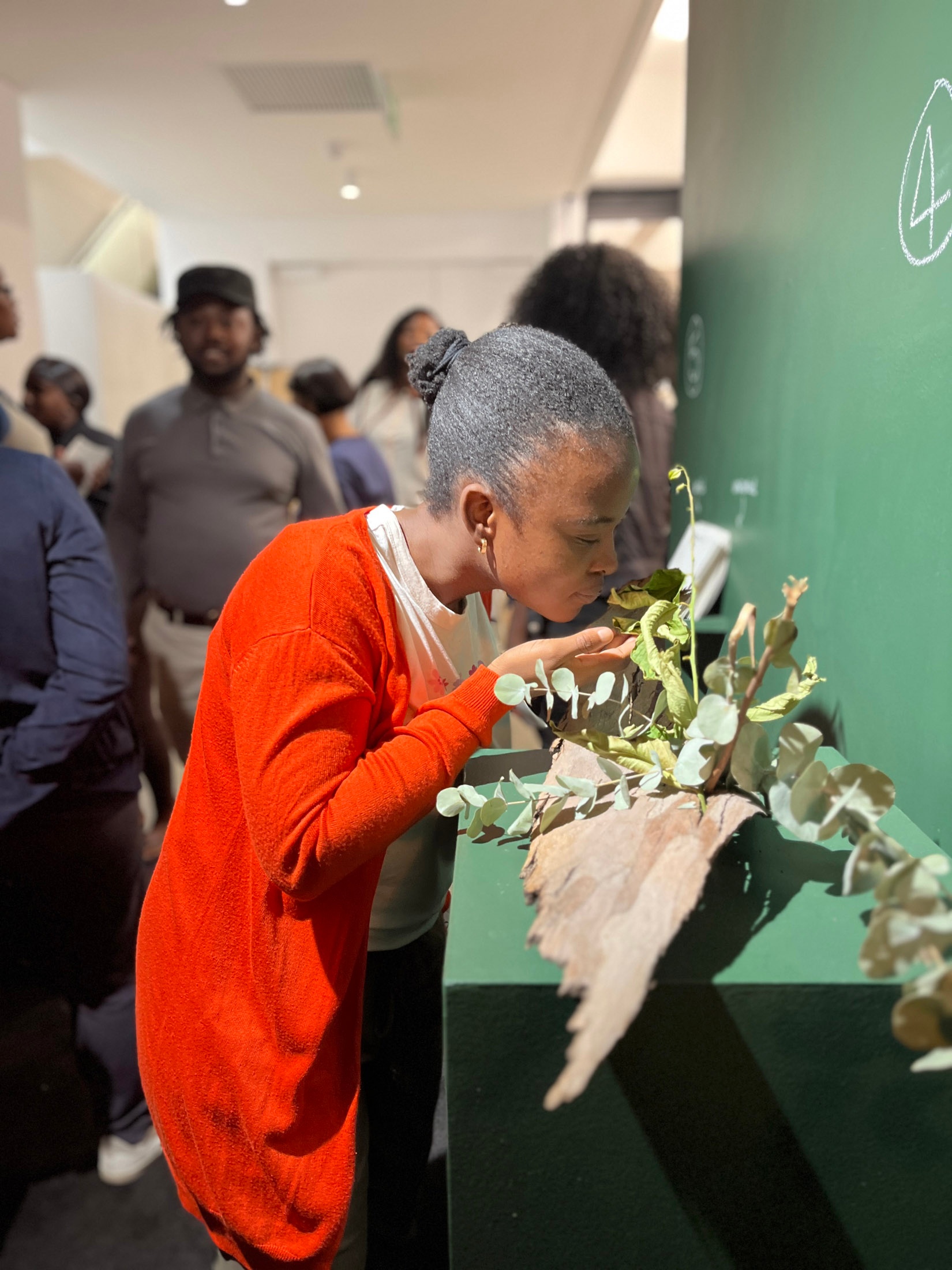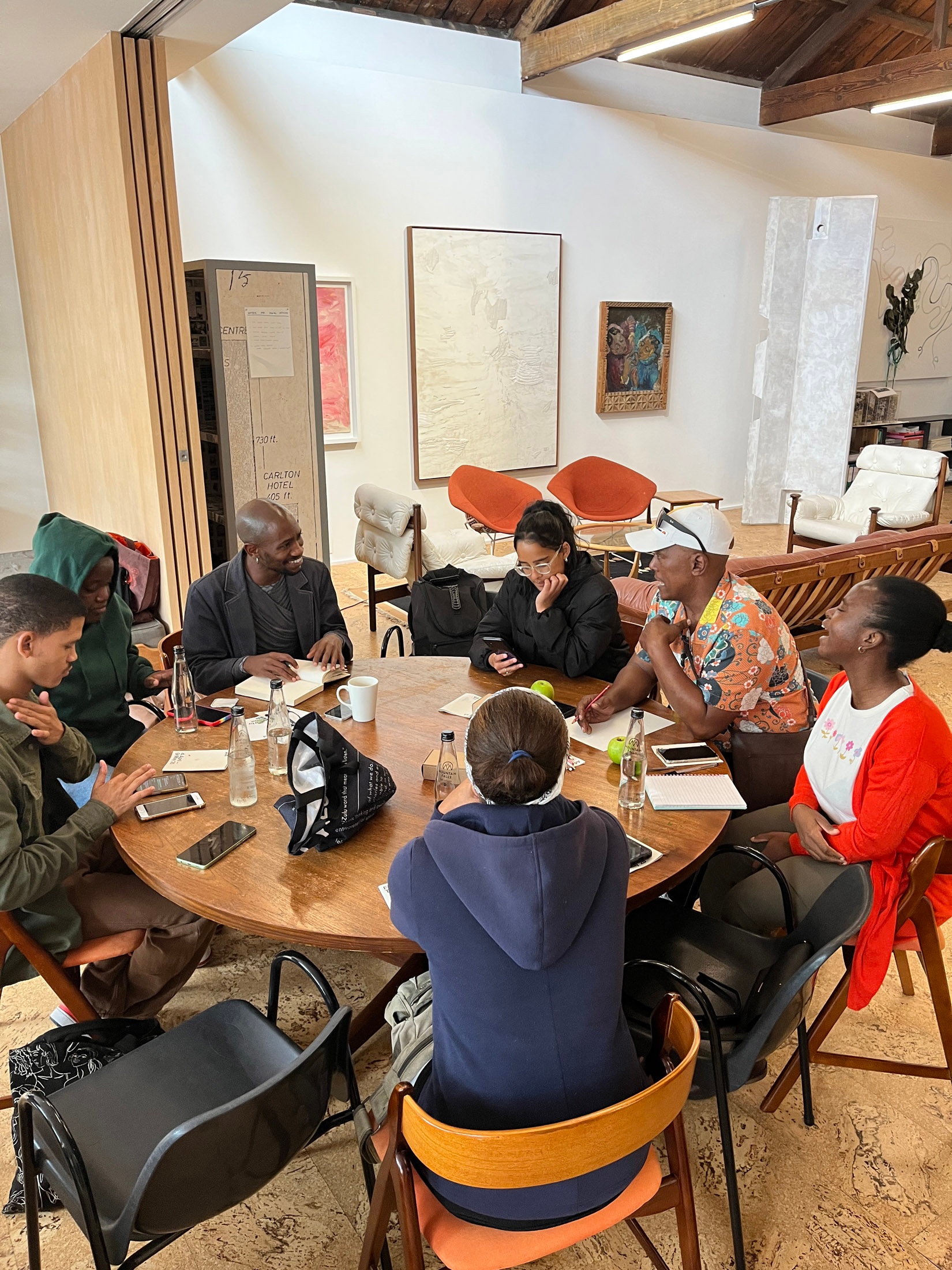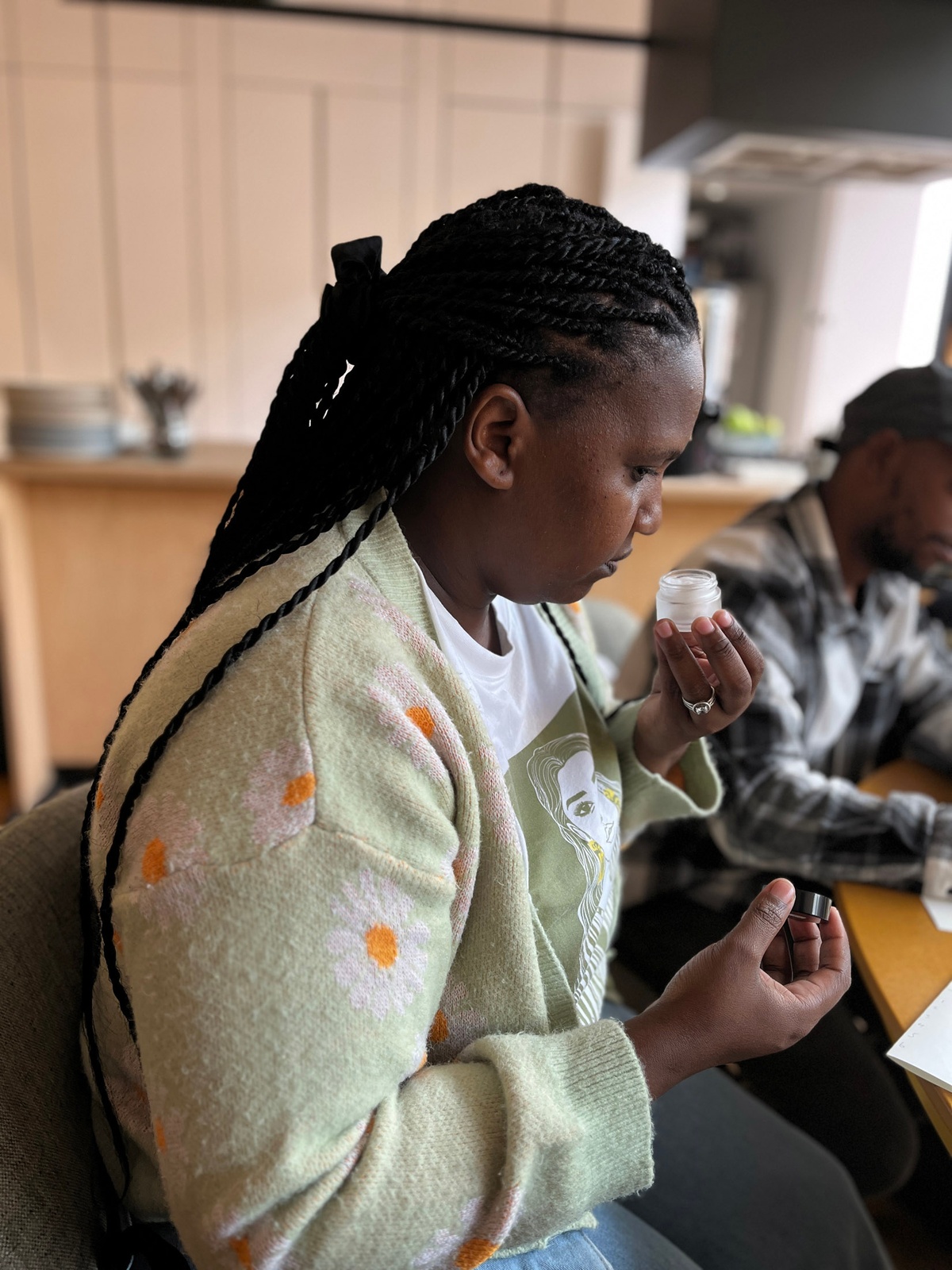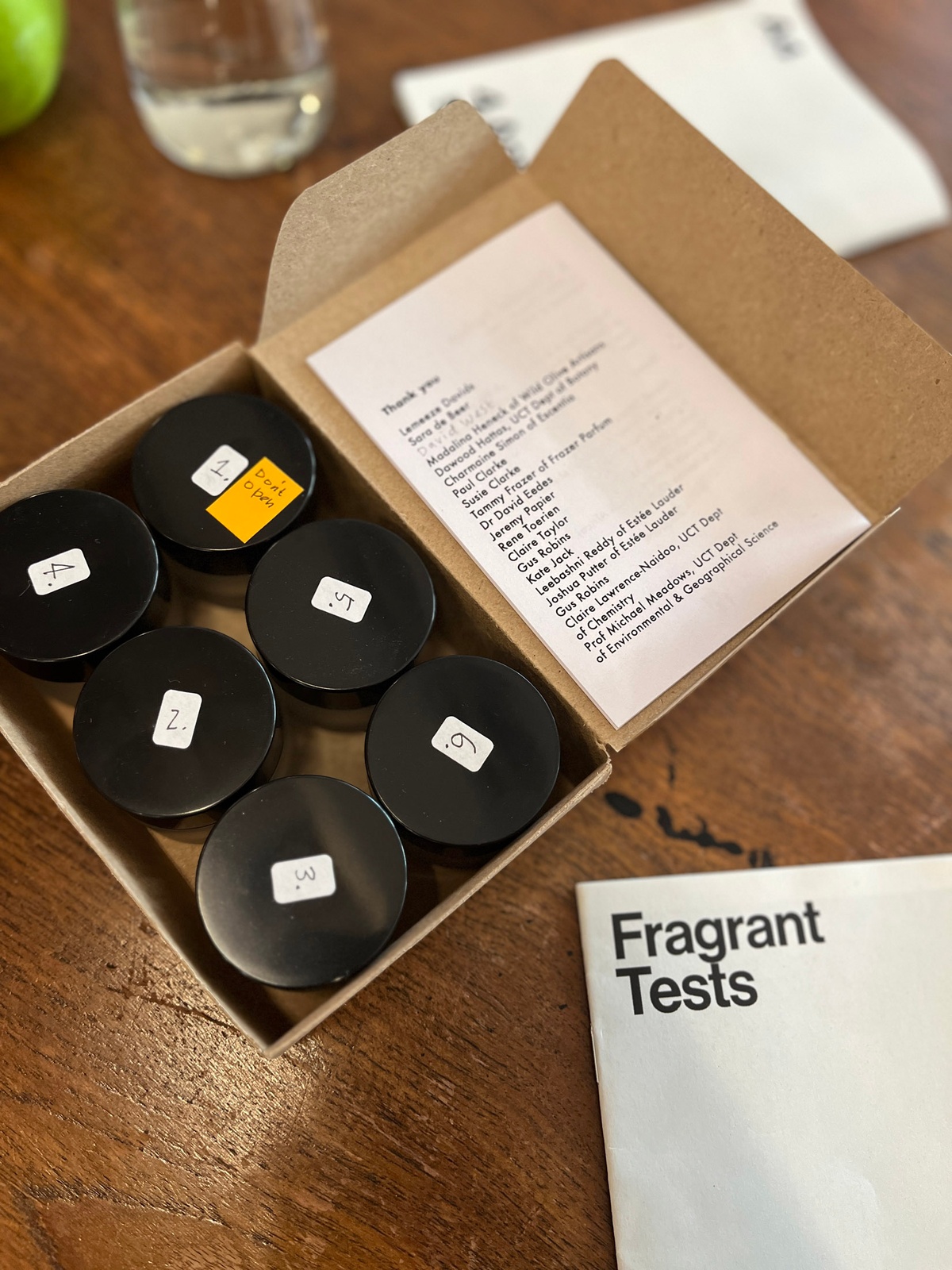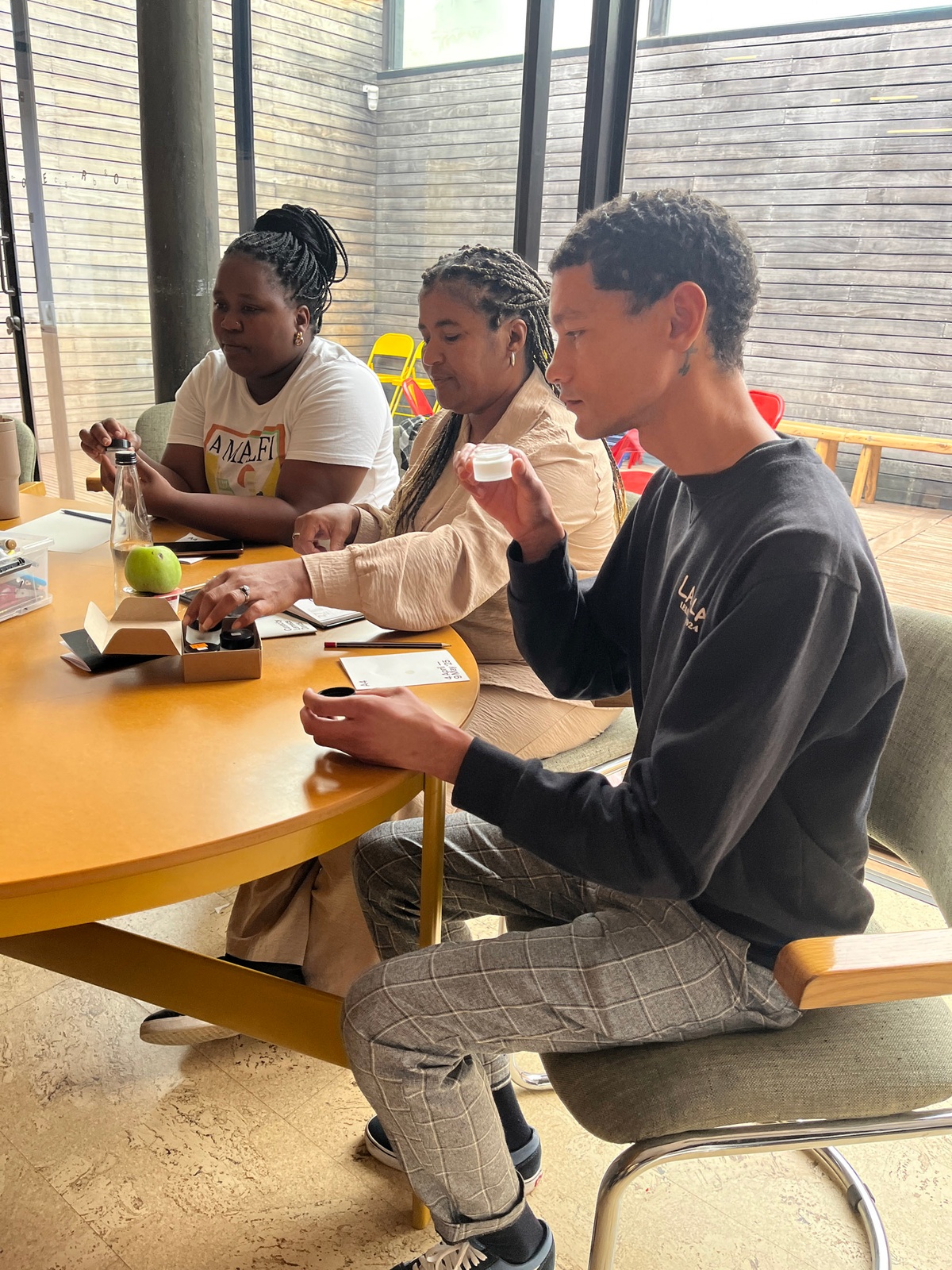Coordinators:
Sara de Beer
Lemeeze Davids
Participants:
Siyolisi Bani
Carol Dube
Siphosethu Gagela
Thandi Gaji
Phumelele Guma
Ryan Lott
Tandi Makhabeni
Nwabisa Ndogeni
Marylin November
Chuma Nozewu
Mark Oppelt
Simamkele Sitwebile
Interns:
Aphiwe Boqwana
Caylin Christians
Sanelise Joko
Everlove Kanyekwele
Special thanks to Andrew Putter
A4 hosts a two-day interactive workshop for Lalela's facilitators exploring sensory approaches to art history, memory and emotional connection. With a focus on the olfactory sense, we explore opportunities the facilitators might have for incorporating smell and taste into their arts curriculum for school-aged learners.
From a walkabout of the exhibition, Fragrant Tests, in A4's project space, curator Lemeeze Davids traces the role of scent and the senses in artistic practice. Considering how scent and the sensory system can act as a tool for cultural storytelling, her presentation draws beyond the artworks present in the room to include Indigo Waves and Other Stories, Dineo Seshee Bopape’s (ka) pheko ye – a dream to come, and Michael Rakowitz’s The Waiting Gardens of the North, alongside art historical references from Fluxus, Relational Aesthetics, and Neo-Concretism.
This is followed by an exploration of Andrew's Putter's Six Smells. Having recently performed his scent-based intervention lecture for A4's team, the artist generously loans us the boxes and scent vials to share with the Lalela facilitators. These become instructional as Sara de Beer re-stages some of the aspects from Putter's interactive performance, encouraging embodied reflection on memory and association. In the afternoon, participants gather in a story circle to share personal or cultural memories linked to scent and taste, exploring the non-linear and deeply layered nature of sensory recall.
The day concludes with a group discussion on how these insights can be used as teaching tools in the arts: How can I approach my role as a facilitator with the mindset of a curator, who arranges experiences to invite meaning, rather than prescribe it? Might sensory methodology deepen learning, and support a wider range of learner responses, including movement, feeling, silence, and improvisation?
